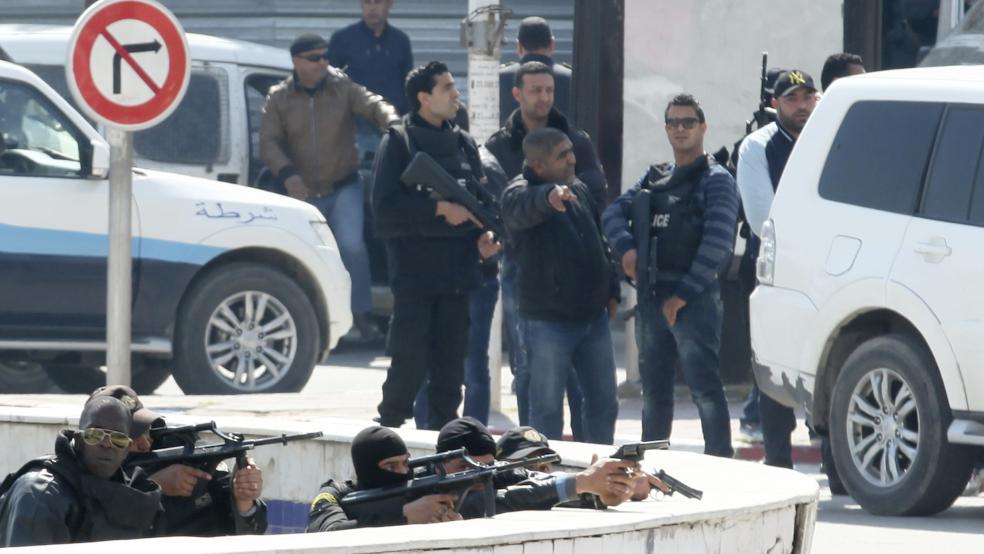Tunisians are still in shock as they process the attack on the Bardo Museum next to the parliament building that killed 21 people Wednesday; most of them were foreign tourists. Two attackers were killed as well. Today, four people were arrested.
The attack took place when at least two militants wearing military uniform fired from their rifles at a bus full of tourists. The terrified tourists rushed inside the museum where they were trapped by the militants for a few hours. A special force interfered and killed the two militants. 44 people were injured, according to the Tunisian State TV.
Related: How Iran Is Taking Over the Middle East
Tunisian President Baji Caid Essebsi described the attack as “a huge disaster,” pledging in a speech aired on national TV that his country will fight terrorism mercilessly. Members of the Tunisian Parliament who were debating a new law to combat terrorism expressed anger and sorrow. “Our country is in danger...there is no security in Tunisia,” said Mohamed Frikha, an MP and executive during the debate after the attack.
A few days ago, some warning messages were circulated on social media from accounts of ISIS sympathizers. Many ISIS accounts on Twitter expressed joy over the news of the attack, calling it “Ghazwat Tunis” or the Tunis assault. “The message that appeared on twitter a few days ago was published by an account that is said to be administrated by individuals with close ties to ISIS, therefore it is likely that the message was authentic,” said Cindy Reiff, a PhD Researcher in Middle East Politics at the University of Exeter.
The 11 million North African nation was until now the sole success story of the Arab Spring. While Egypt’s short-lived democracy was sacked by the army, Yemen's by the Houthi rebels, Bahrain's uprising by the Saudi military intervention, and Syria and Libya are still suffering civil wars, Tunisia was spared the carnage its Arab sisters endured. After its successful revolution in 2010-2011 that toppled the dictator Zine El Abidine Ben Ali, an election brought the Muslim Brotherhood to power. Unlike Egypt’s coup that toppled the Muslim Brotherhood, the power in Tunisia was handed peaceful to a new elected government.
Related: US Weapons Worth $500 Million Vanish in Yemen
Nevertheless, many thousands of young Tunisians joined Islamic extremist groups like ISIS and others. Unemployment and the failure of the post revolution governments contributed in the radicalization of many Tunisian young men and women. Except for the Syrian and Iraqis, Tunisians are the largest group fighting with ISIS, with an estimate of 3000 who joined the terror group.
“I’d rather see an ISIS using existing recruitment cells and a persistent high level of discontent among Tunisian youth, with the government's lack of socio-economic development to secure a constant flow of fighters,” said Jasmine Opperman, the African affairs researcher at Terrorism Research and Analysis Consortium.
While a number of attacks took place in Tunisia over the last few years, yesterday’s attack -- the largest to date -- hit at the heart of the capital. Tunisia's - neighbors: Algeria and Libya suffer of military conflicts with Islamic groups. If Tunisia can be rocked by violence, that entire area of the Arab Mediterranean will be at risk.
Top Reads from The Fiscal Times:




